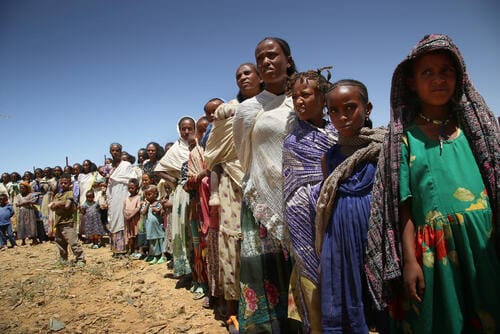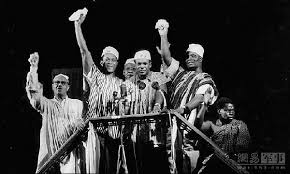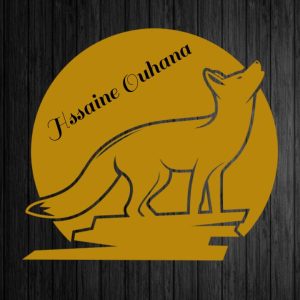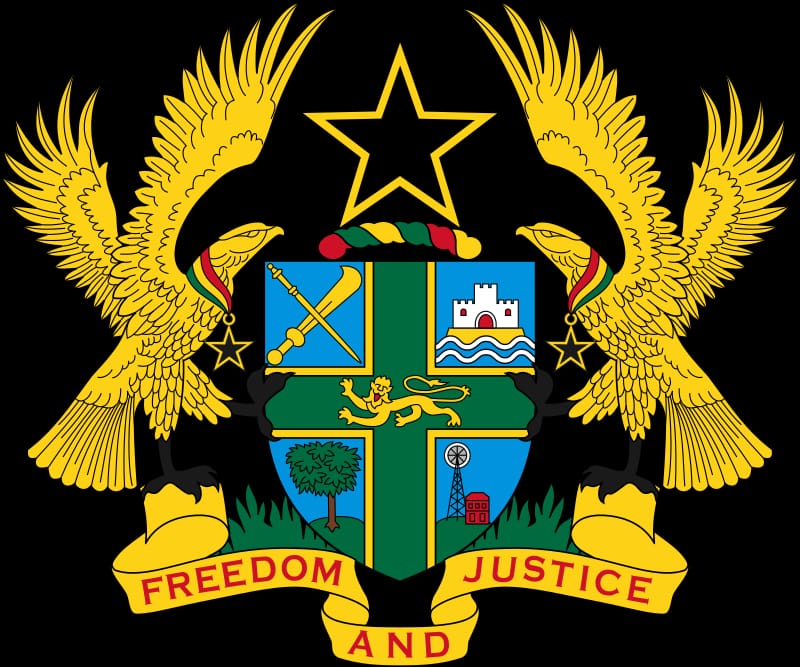Ghana History, the Republic of Ghana is an African country located along the Gulf of Guinea and the Atlantic Ocean, in the subregion of West Africa. It is bordered by Burkina Faso to the north, Togo to the east, and Ivory Coast to the west. It is a pivotal state in West Africa. It became independent from Britain in 1957 AD, its official language is English and its currency is the Cedi. Its former name was the Gold Coast. Its current name is named after the historical country known as the Ghana Empire, although it did not fall within the borders of that country. It covers an area of 238,535 square kilometers. Ghana means “Warrior King” in the Soninke language.
It was known in the past as the Gold Coast, and it was subject to British colonialism from (1314 AH – 1896 AD) and gained its independence in the year (1377 AH – 1957 AD), after an occupation that lasted more than sixty years, and it was the first colony to become independent in West Africa, and Muslims make up 15.9 Almost % of its population was ruled by Moroccans in 1600 AD. On March 6, 1957, Ghana gained its independence after six decades of British occupation. With its independence, Ghana announced the change of its name from the Gold Coast, which was the name given by the English colonists to Ghana. Ghana’s independence in 1957 came as a culmination of the national struggle led by Kwame Nkrumah, the first president of the independent Republic of Ghana since the end of World War II, and the spread of the wave of national liberation among the occupied peoples in Asia and Africa. The national liberation movement began in Ghana at the hands of the Unified Gold Coast Conference, which Nkrumah led in 1947 AD after his return from Britain, which led to his arrest. After his release, he formed the People’s Congress Party to achieve self-rule for Ghana. The party won the municipal elections held in 1950 AD and Nkrumah became Prime Minister of the Gold Coast (Ghana) in 1952
Ghana is considered one of the African countries that suffered through decades of military coups that prevented all manifestations of democracy, including the freedom to form parties, then the ruling regimes were forced under pressure to allow the freedom to form parties. From here, the process of democratic transition began in Ghana, and the first elections were held in 1992, and Rollingers with a military background were elected, then all the way to the 2000 elections and the election of the first civilian president after decades of military control over the government.

It was known in the past as the “Island of Gold” under the control of European colonialism, which alternated between its right and left, as its natural wealth was salivated by the three colonial powers (Portugal, the Netherlands, and Britain), and they fought to win it, but in the end, it triumphed over everyone to become the first independent country in West Africa.
“Ghana”… This country, which was suffering not long ago from extreme poverty, the almost complete collapse of the infrastructure and society, and a flabby economy running on the crutches of external support, today has one of the most successful experiences in the African continent at the political and economic level.
On March 6 of each year, the Ghanaians celebrate Independence Day. On this day, these struggling African people got rid of the British colonialism that perched on their chest for nearly 60 years (1896-1957 AD), presenting a unique experience of national liberation that was accompanied by political liberation. Then economical.
In this fleeting tour, we shed light on the most prominent features of the independence journey for this country (located along the Gulf of Guinea and the Atlantic Ocean and bordered by Burkina Faso to the north, Togo to the east, and Ivory Coast to the west), which today has become one of the top ten in Africa, and how it succeeded in crossing the ordeal The colonial humiliation that plundered its wealth and impoverished its people and turned them into slaves in the service of the masters of the old continent before they became a difficult number in the developmental map of the brown continent.
60 years under British colonialism
The history of Ghana dates back to the year 1200 AD when it was a land inhabited by people and bounties within the historical kingdoms of Africa in the northwest of the continent.
On one of the Portuguese expeditions in 1471 AD, they landed on the shore of Ghana, and they stayed there for some time to discover the golden riches of the country, which made them salivate, so they settled in it and called it the “Gold Coast” so that the reputation of this rich place began to spread in Europe, which was looking at that time for mines and hoards. It covers the expenses of its colonial plans.
In 1642, the Dutch came to compete with the Portuguese for the wealth of that newly discovered country, and indeed they were able to seize it, ending more than 170 years of Portuguese sovereignty, and they remained in it for nearly a quarter of a century until the British came in 1872 to impose their full control over that region.
Ghana’s independence
Ghana History, the Ghanaians did not raise the white flag of surrendering to the European colonizer and welcoming him, as European books imagined. way to expel the colonizer.
The people of Ghana waged fierce resistance against the Portuguese, and after them, the Dutch, and then the British for nearly a hundred years, during which many deaths occurred, while others were turned into inferior acts as a punishment for them, such as slavery and others, and from the womb of that suffering was born the historical leader of the resistance, Kwame Nkrumah, who was born in Accra 1909.
While the British were plundering the body of Ghana and robbing it of its wealth, Nkrumah was waging a war of another kind in America and Europe, where he worked as a professor at Lincoln University in America in 1935 and then at the School of Economics in London in 1945, and he was leading the activities of African students there to denounce the British colonialism of his country.
After his return to his country in late 1947, Nkrumah took the first steps of the actual struggle by founding the Unified Gold Beach Conference, the first of the popular action against colonialism, then soon established the People’s Congress Party in 1949 and its main slogan was “Achieving self-rule for the country.”
His movements aroused the ire of the British authorities, who arrested him in 1950 and sentenced him to 3 years in prison. Surprisingly, his new party won the municipal and general elections that took place in 1952 to release him and become prime minister, to begin a new phase of resistance from the chairs of power.
After dozens of years, the Ghanaians fought in defense of their country’s sovereignty, and in the face of international pressure and the losses incurred by the British at the hands of the resistance, the country gained its independence on March 6, 1957, becoming the first country to gain its independence in West Africa, and then opening the way for the occupied countries to gain their independence.



Leave a Reply